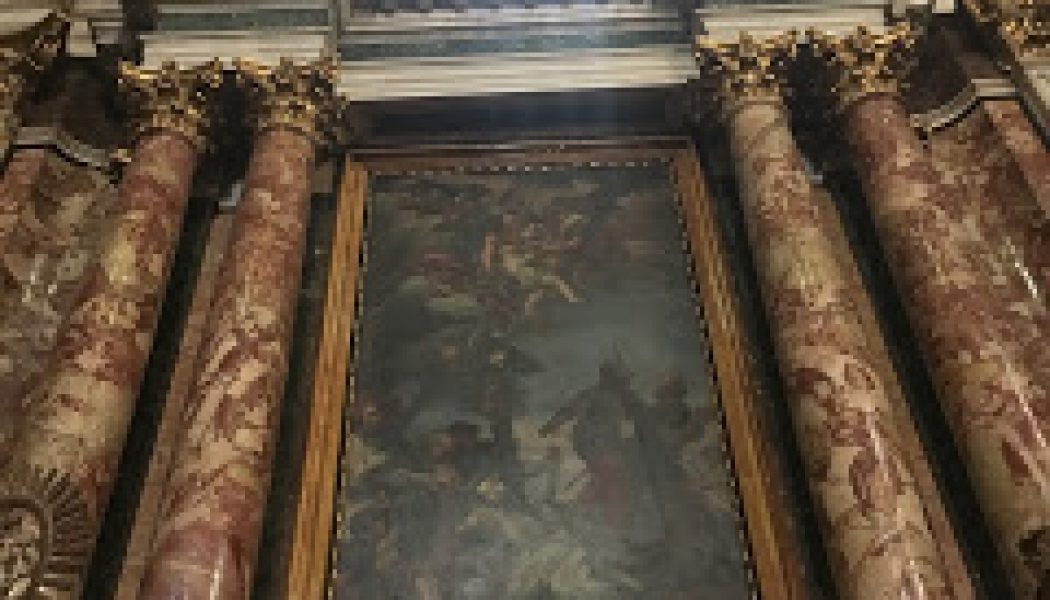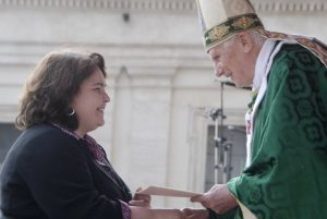Dissociated from the natural world and, thus, our own humanity, without the witness of saints, we find ourselves rendering sacrifice to the golden calf of a therapeutic utopia. Without them, we are left with the secular media as our prophets. Instead of men chosen by God, doctors, psychologists and other experts ape priesthood on the altars of our phone screens. We presume that our salvation is in the next advancement in technology or medical discovery – and, when we are not otherwise scapegoating one another, we convince ourselves that only the unborn can serve as our unblemished holocaust. So the womb is the most dangerous place of a baby in a society that sanctions religious hatred — only when saints cry out can we return to our senses to heal this deadly structural and institutional bigotry.
In the spiritual vacuum such irreligious pursuits occasion, our society now deems the ultimate purpose of life to be the advancement of the biological and physical freedom to achieve absolute autonomous self-definition. Yet we are not absolutely autonomous beings. This is supreme presumption for, indeed, we are not gods. The path to sanctity, so maligned today, into the most sacred depths and fragile limits of humanity begins when one humbly accepts this revealed truth. Because he knows that he is not God, only the saint can fill this vacuous need for meaning haunting the hearts of our contemporaries, and to the saint alone belongs the task of helping our communities remember the sacred truth that has been entrusted to their care.
In the silence of a single saint, deepest truth pierces every empty slogans bellowing out of the dimmed consciences of our angry mobs. What else can any mob yell but “Crucify Him”? If a mob again cries “Barnabas,” it is only because it always sides with murderers rather than the innocent. The suffering silence of a holy witness is pregnant with that new life that the blessing of persecution begets.
To hear the truth about humanity, the saints help us assume the posture of the Good Thief: only when we are convinced of sin can we repent of how conformed we have been to this world and call out Christ, our Savior. Paradise awaits those who are condemned if they will let Him speak. As political activism would seem to eclipse the light of faith, we have saints in our midst who help us see a pronounced and growing desire for the spiritual truth that Christ whispers into our hearts. These saint believe that there is a new openness to the spiritual riches of Christianity even when the witness of religious art is torn from the public square because they have beheld the beauty of Christ.
Wherever sin abounds, grace abounds the more. Saints help us remember to search and ponder what is good, beautiful, true and noble. To find these graces (and there are twice as many of them as there are evils) requires another courageous form of silence. This is not the silence that hides itself because it is afraid of another’s wrath. This deeper silence can patiently endure the rage the spews from righteous indignation of another because it is confident of a much deeper justice, a justice that only mercy knows. This silence does not fear abysses of misery but carefully journeys through them until it arrives at a deep place of encounter. Such prayer goes deeper than fear and rage, and rests only in the truth. On that holy ground is planted the cruciform still point around which the world turns, the threshold to the Heart of God.


![More horrifying images turn up in pitch-black ‘Baalenciaga’ ad campaign [caution: disturbing photos in this story]…](https://salvationprosperity.net/wp-content/uploads/2022/11/more-horrifying-images-turn-up-in-pitch-black-baalenciaga-ad-campaign-caution-disturbing-photos-in-this-story-327x219.png)




